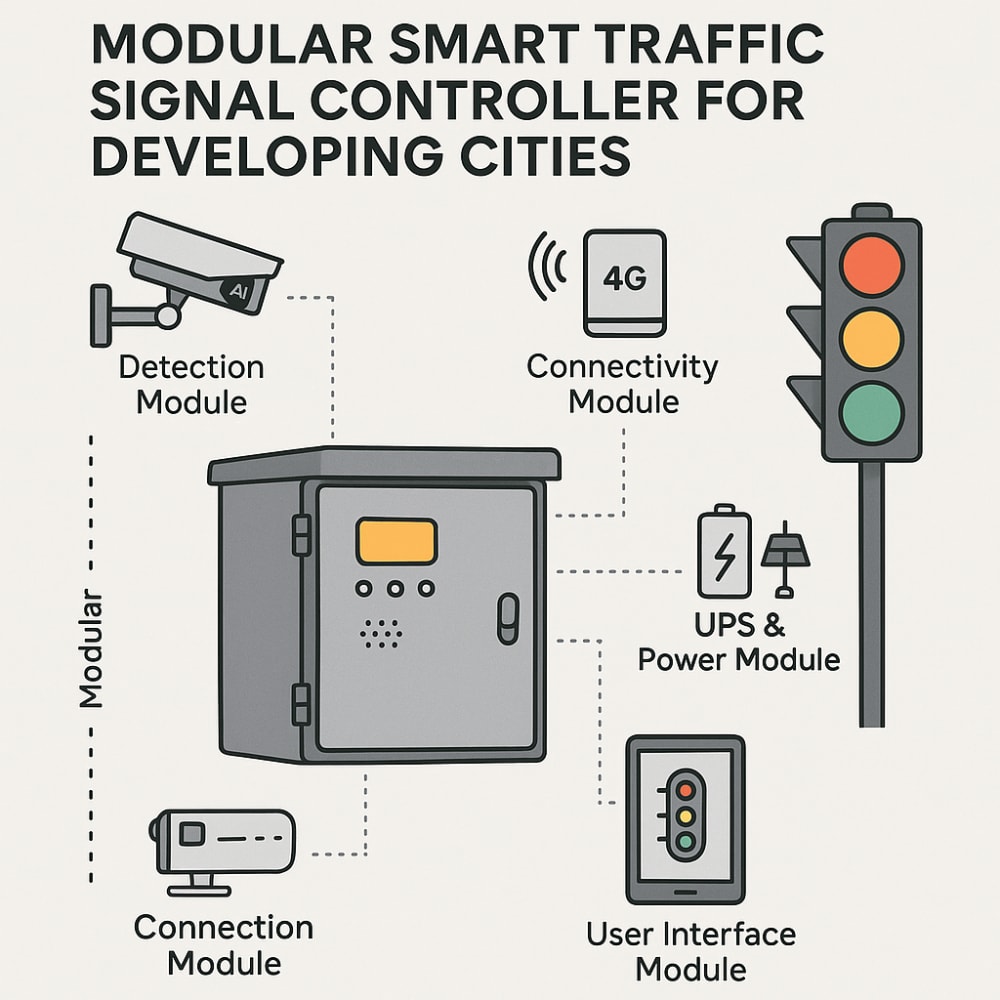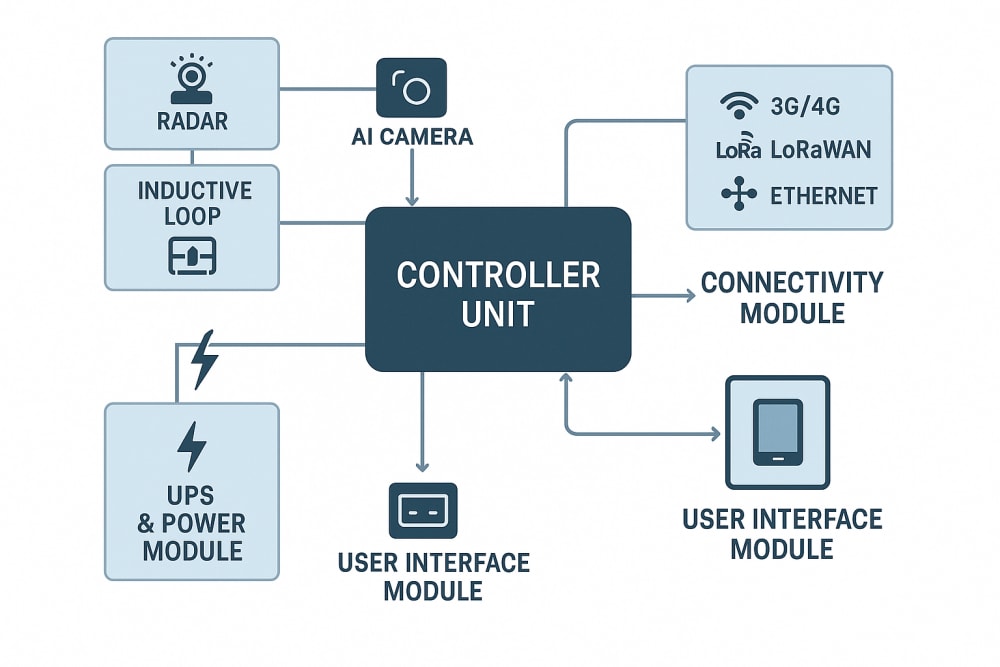In many developing cities, intersections are managed by outdated or manually operated signal systems that lack real-time adaptation, data integration, and remote monitoring capabilities. This leads to chronic congestion, unsafe pedestrian conditions, longer travel times, and increased emissions. While advanced traffic signal controllers exist, they are typically expensive, proprietary, and not scalable for small- and mid-sized cities with limited budgets and fragmented infrastructure.
This entry proposes a Modular Smart Traffic Signal Controller — a scalable, affordable, and open-standard-based ITS toolkit tailored for the unique needs of developing cities. The design introduces a plug-and-play system architecture with interoperable modules that can be locally assembled and configured according to available resources, traffic complexity, and technical capacity.
The Controller Unit serves as the core, powered by an industrial-grade processor compatible with NEMA or SCATS protocols. Surrounding this are modular components:
- A Detection Module supports inputs from radar, inductive loops, and AI cameras for dynamic signal optimization and red-light enforcement.
- A Connectivity Module includes 3G/4G, Ethernet, and LoRaWAN options, enabling integration with centralized control centers and cloud dashboards.
- A User Interface Module allows simplified configuration and real-time monitoring via mobile or web apps.
- A UPS & Power Module ensures reliable operation during outages, with solar-ready options for off-grid deployment.
What makes this design novel is its flexible modularity, local manufacturability, and open-source-friendly architecture. Unlike monolithic controllers, each module can be deployed incrementally. Cities may start with basic fixed-time functionality and gradually add detection, communications, and remote access as funding and capacity grow.
The system is intended for deployment in secondary cities, peri-urban towns, and donor-funded smart mobility projects. It improves intersection safety, reduces delays, enables data collection for transport planning, and lays the foundation for long-term ITS development. The estimated cost for a basic deployment is under $1,000 — a fraction of the $7,000–$20,000 price tag of most imported controllers.
All components are designed for local assembly using off-the-shelf electronics, open-source firmware, and standardized enclosures, promoting job creation and capacity-building in emerging markets. Optional SaaS dashboards allow for integration with AI-based analytics, fault detection, and maintenance planning.
This modular ITS platform enables rapid, affordable modernization of traffic infrastructure, helping cities transition from analog to smart systems without requiring a full system overhaul. It directly supports broader goals such as reducing fuel consumption, improving public safety, increasing pedestrian accessibility, and enabling smart city growth.
Like this entry?
-
About the Entrant
- Name:Ijaz Ali
- Type of entry:individual
- Patent status:none





